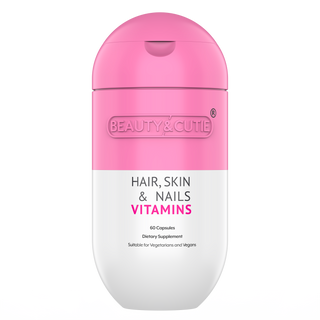As cities continue to grow and urbanization increases, pollution has become a serious concern for our health and well-being. Pollution can have a detrimental effect on our skin, causing premature aging, dryness, and other skin conditions. As teenagers, you are at a crucial stage in your skincare journey, and it's important to take steps to protect your skin from pollution. In this article, we will provide you with tips on how to protect your skin from pollution, so that you can maintain healthy and radiant skin.
What Is Pollution?
Pollution refers to the presence or introduction of harmful substances into the natural environment. These harmful substances can come from a variety of sources, including industrial activities, transportation, and households. Air pollution is one of the most common forms of pollution, and it can have a significant impact on our skin.
Pollution particles, such as dirt, dust, and soot, are small enough to penetrate our skin's surface and cause damage to our skin cells. This can result in a variety of skin concerns, including premature aging, dryness, acne, and even skin cancer. It's important to take steps to protect your skin from pollution to maintain a healthy and youthful complexion.
What Are The Effects Of Pollution On Skin?
Pollution has a range of harmful effects on our skin, and they can manifest in different ways. One of the most common effects of pollution on the skin is premature aging. The pollutants in the air can break down collagen and elastin fibers in our skin, leading to the formation of fine lines, wrinkles, and age spots.
Pollution can also cause dryness and irritation to the skin. The pollutants can weaken the skin's barrier function, causing it to lose moisture and become dehydrated. This can lead to a dull and lackluster complexion, as well as inflammation and redness.
In addition, pollution can exacerbate existing skin conditions such as acne, eczema, and psoriasis. The pollutants can clog pores and trigger inflammation, resulting in breakouts and flare-ups.
How To Protect Skin From Pollution
Here are five tips on how to protect your skin from pollution:
- Cleanse your skin thoroughly: It's important to cleanse your skin every morning and evening to remove any pollutants that may have accumulated on your skin. Use a gentle cleanser that won't strip your skin of its natural oils.
- Apply a protective barrier: Use moisturizers that contain antioxidants, such as Vitamin C or E, to create a protective barrier on your skin. This will help to neutralize free radicals and prevent damage to your skin cells.
- Wear sunscreen: Sunscreen is not just for protecting your skin from UV rays. It also helps to protect your skin from pollution by creating a physical barrier between your skin and the environment.
- Use an air purifier: If you live in a highly polluted area, consider investing in an air purifier for your home. This will help to remove pollutants from the air and protect your skin from their harmful effects.
- Avoid smoking and secondhand smoke: Smoking and exposure to secondhand smoke can cause significant damage to your skin. Avoid smoking and try to stay away from environments where people are smoking.
- Face Masks: Incorporating face masks into your skincare routine can also help to protect your skin from pollution. Look for masks that contain ingredients like activated charcoal or clay, which can help to draw out pollutants and impurities from your skin.
By following these tips, you can protect your skin from pollution and maintain a healthy and radiant complexion. Remember, prevention is key when it comes to protecting your skin from pollution, so start implementing these tips into your skincare routine today.
What Are The Different Types Of Pollution?
Pollution can come in many different forms, each with its own unique effects on the skin. Here are some of the most common types of pollution and how they can impact your skin:
- Air Pollution: Air pollution can contain a variety of harmful particles, including particulate matter, ozone, bacteria, and nitrogen dioxide. These pollutants can penetrate the skin and cause damage to the skin's barrier function, leading to dehydration, inflammation, and premature aging.
- Water Pollution: Water pollution can contain a variety of chemical contaminants, such as heavy metals, pesticides, and industrial chemicals. These pollutants can enter the body through drinking water or contact with contaminated water sources, leading to skin irritation, rashes, and other skin conditions.
- UV Radiation: UV radiation from the sun can also be considered a form of pollution, as prolonged exposure can cause uv damage to the skin's DNA and lead to skin cancer, premature aging, and other skin conditions.
- Indoor Pollution: Indoor pollution can come from a variety of sources, such as household cleaning products, smoke, and synthetic materials. These pollutants can cause skin irritation, allergies, and other skin conditions.
By understanding the different types of pollution and their effects on the skin, you can take steps to protect yourself and maintain healthy, glowing skin.
What Foods Can I Eat To Help Protect My Skin From Pollution?
Here are seven recommended foods for protecting your skin from pollution:
- Berries: Blueberries, raspberries, and strawberries are rich in antioxidants, which help protect your skin from pollution by neutralizing free radicals.
- Leafy Greens: Leafy greens are high in vitamins A and C. These vitamins can strengthen your skin's barrier against pollution.
- Nuts: Almonds, walnuts, and other nuts are excellent sources of vitamin E. This vitamin can protect your skin from oxidative stress caused by pollution.
- Green Tea: Green tea is rich in antioxidants, making it an excellent beverage choice for protecting your skin from pollution.
- Tomatoes: Tomatoes contain lycopene, a powerful antioxidant that can protect your skin from UV radiation and pollution.
- Fatty Fish: Fatty fish like salmon, mackerel, and sardines are rich in omega-3 fatty acids. These fatty acids can help reduce inflammation and protect your skin from pollution.
- Carrots: Carrots are high in beta-carotene, which can help protect your skin from environmental damage.
Are There Any Natural Remedies That Can Help Protect My Skin From Pollution?
There are several natural remedies that can help shield your skin from pollution and keep it healthy and glowing.
- Antioxidants: Natural antioxidants such as vitamins C, E, and green tea extract have been proven to protect the skin from environmental pollutants. These antioxidants neutralize free radicals, which are unstable molecules that can damage skin cells and cause premature aging.
- Honey: Honey is a natural humectant, which means it helps to lock in moisture and keep skin hydrated. It also has anti-inflammatory properties that can soothe and calm irritated skin.
- Coconut oil: Coconut oil is rich in fatty acids that can help protect the skin's natural barrier and prevent pollution from penetrating into the skin. It also has natural antibacterial properties that can help fight acne-causing bacteria.
- Aloe vera: Aloe vera is known for its soothing and healing properties. It can help to calm inflammation caused by pollution and provide a protective barrier for the skin.
- Charcoal: Activated charcoal is a natural detoxifier that can help absorb impurities and pollutants from the skin. It is often used in face masks to help unclog pores and leave skin feeling clean and refreshed.
Conclusion
Pollution has become a major concern for skin health, and it is important to take steps to protect your skin from its harmful effects. Incorporating antioxidant-rich foods into your diet and utilizing natural remedies like honey, coconut oil, and aloe vera can help shield your skin from pollution and keep it healthy and glowing. Additionally, using a daily SPF and avoiding prolonged exposure to pollution can go a long way in protecting your skin. By taking a few simple steps, you can help ensure that your skin remains healthy and protected from the harsh effects of pollution.
Final Thoughts
Beauty and Cutie have crafted a revolutionary supplement to help you look your best! Our advanced formula is packed with essential vitamins, minerals, and amino acids that will promote cell production for beautiful-looking hair, skin, and nails. Choose Beauty and Cutie today for improved confidence in your looks!
Sources
- https://www.britannica.com/science/pollution-environment
- https://my.clevelandclinic.org/health/symptoms/23105-premature-aging
- https://www.verywellhealth.com/vitamin-c-for-skin-5084225
- https://www.cdc.gov/nceh/features/uv-radiation-safety/index.html
- https://www.healthline.com/health/vitamin-e-for-skin
- https://pharmeasy.in/blog/9-aloe-vera-benefits-for-face-skin/
*These statements have not been evaluated by the Food and Drug Administration. This product is not intended to diagnose, treat, cure or prevent any diseases.


